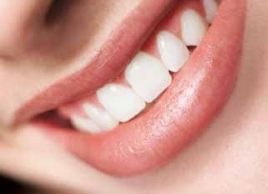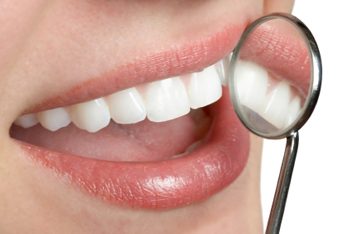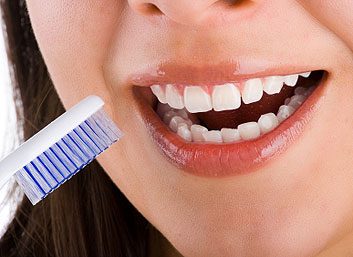
What causes sensitive teeth?
“Sensitive” is a pretty weak word for the shooting pain that can sometimes come with this tooth condition. Sensitive teeth happen when you lose either the enamel, which covers the crown of the tooth, or the cementum, which covers the root. Since cementum isn’t as hard as enamel, it wears away more easily.
The material underneath, called dentin, has nerve endings running through it. So when that’s exposed, yeowch! “[Tooth sensitivity] is a huge issue for people,” says Maureen Bowerman, a dental hygienist in Saskatoon.
Think you have sensitive teeth? Take our quiz to learn more about the condition and what you can do to avoid the pain.

Q: Does cold hurt your teeth?
Does the very idea of taking a big bite out of an ice cream cone send shivers down your spine? How about a spoonful of hot soup? The nerve endings exposed in someone with sensitive teeth are stimulated by changes in temperature or sugary foods. Even breathing in cool air can cause a twinge of pain. “My question is, can they drink cold water with ice cubes in it? If they can’t, that’s a concern,” says Bowerman.

Causes of temporary tooth pain
Sometimes, though, your teeth are feeling discomfort for reasons other than uncovered dentin. A whitening treatment may cause temporary sensitivity in some people. A cracked tooth or filling can cause sensitivity until it’s repaired. Even dental work can lead to short-term tooth sensitivity.

Q: Do you have receding gums?
In most cases of sensitive teeth, the discomfort comes from dentin that is exposed when cementum has been worn away. (That’s the outermost layer of the tooth root, or lower part of your tooth.) Normally, the tooth root is covered by gum tissue. But if your gums have receded, some of the root surface will be exposed, making the cementum more likely to erode. Receding gums happen naturally over time, but they’re also often made worse by gum disease.

How do you know if your gums are receding?
At least half of us have at least some gum recession, but your dental health professional can tell you for sure by examining your mouth. There are also signs you may see in the mirror at home. Your teeth may look longer, or you may even see a little notch in your teeth close to the gum line.

Q: Do you brush too hard?
If you scrub your teeth back and forth forcefully or use a hard-bristled toothbrush, it’s likely you’re wearing away the outer layer of your teeth. Both the enamel (which covers the tooth’s crown) and the cementum (covering the root) can be eroded by brushing too hard.

Are you brushing the wrong way?
To find out if you’re damaging your teeth and gums when you brush, Bowerman suggests having your technique assessed by your dentist or dental hygienist. “Brush for them. Show them exactly what you do in the morning.” In the meantime, check out these four signs you’re brushing the wrong way.

Q: Is your diet too acidic?
The protective outer layers of your teeth can also be eroded by acid attacks from certain foods and drinks. These include pop, citrus fruits and fruit juices, red wine and salad dressings. Make an effort to consume these foods in moderation. Try using a straw when you drink pop or juice, so the liquid bypasses your teeth altogether. And be sure to avoid these other foods that destroy your teeth, too.

Don’t rush to brush when you eat acidic foods
When you do eat acidic foods and drinks, the current thinking is it may be best to wait 20 minutes before brushing. That way, your saliva has a chance to neutralize the acid in your mouth. Early brushing may, in fact, further wear away your teeth.

Still not sure about sensitive teeth?
Is it possible to have sensitive teeth without knowing it? The short answer is no; if your teeth are sensitive, you’ll know it from the pain. However, it is possible to have exposed dentin without feeling it. If the exposure has happened very slowly, your teeth may have managed to compensate by producing extra dentin as insulation. But it’s still important to fix the problem because uncovered dentin at the root of your tooth puts you at risk of decay. “Root cavities and decay are a growing concern,” says Bowerman. Be sure to schedule regular cleanings and check-ups with your dental care professional to keep your pearly whites healthy-and pain-free.
Related:
• 6 ways to soothe sensitive teeth
• Quiz: How much do you know about your mouth?
• How to deal with tooth emergencies
